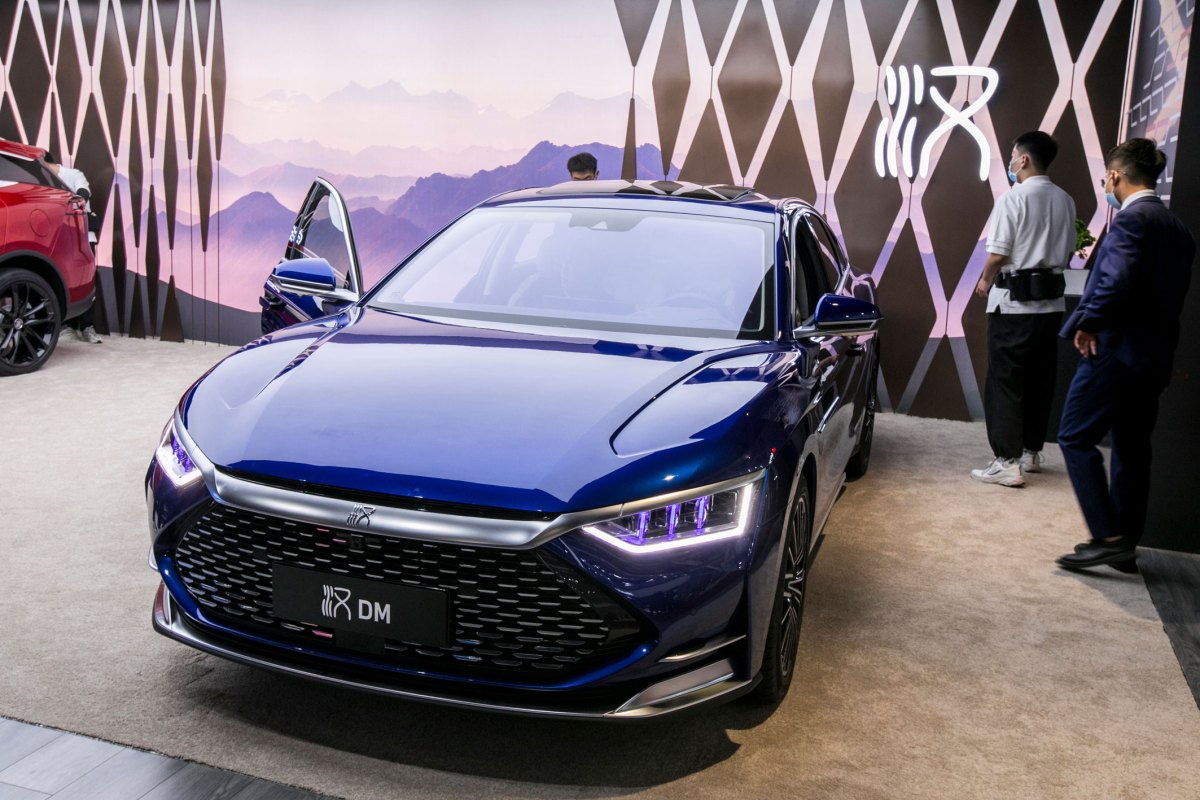The White House issued a long-anticipated proposal Monday that would ban Chinese smart cars because internet-connected vehicles pose a national security risk. The proposal, made amid an escalating trade war, could affect U.S. automakers and suppliers that rely on certain hardware to enable connected vehicle systems.
“This is both strategic political theater designed to head off an issue before it fully metastasizes, and it’s also likely to have an impact on companies operating today,” Avery Ash, senior vice president of government relations at SAFE, a national security focused think tank, told TechCrunch.
The U.S. Department of Commerce’s proposed rulemaking would not only prohibit the sale or import of connected vehicles from China, but it would also ban the software and hardware that powers those systems in U.S. connected cars.
The ruling, if adopted, would provide automakers with a year to ensure their connected vehicle software has no ties to China, something Ash said won’t be a problem for most manufacturers.
What might pose a challenge to supply chains, though, is the hardware ban. Automakers would have four years to remove certain Chinese-affiliated hardware from their connected vehicles — things like onboard sensors, connectivity control units, Bluetooth, or antennas and chipsets that allow cars to connect to the internet.
The Commerce Department will consider letting small producers of vehicles apply for exemptions on the ban on a case-by-case basis to minimize unnecessary industry disruption.
U.S.-based autonomous vehicle companies wouldn’t face the same hardware restrictions as automakers, however. The proposed ban would only limit the use of Chinese software on AVs Level 3 and Level 4. In both instances the car can drive itself under certain conditions, although a human driver would need to take over if necessary for Level 3 systems. AV companies have argued that having full control over their software would mitigate any potential hardware risks.
And of course, the ban would limit Chinese AV companies from testing and deploying in the U.S. While there have been several Chinese robotaxi startups testing in the U.S. over the years — with some like Nullmax, Pony.ai, and WeRide still with active testing permits in California — most have seen the writing on the wall and have stopped testing.
WeRide, which is seeking a U.S. IPO at a $5 billion valuation, paused its plans to go public in August.
Ash said this ruling is necessary to protect national security interests. The logic is that connected cars, which include electric and autonomous vehicles, collect sensitive driver and passenger data. They also have cameras and sensors that power automated driving features and could record detailed information about American infrastructure.
The proposed ruling is one of the Biden administration’s last major restrictions on Chinese products into the U.S. It follows the government’s ban of Huawei and ZTE, and other technology from prominent Chinese telecommunications and video surveillance brands, as well as investigations into Chinese cranes at U.S. ports. It also operates under the same national security principle as the Biden administration’s ban of social media app TikTok.
The ban would expand on the Biden administration’s decision to quadruple import duties on Chinese electric vehicles to 100%, saying Chinese government subsidies artificially lowered prices for EVs. The tariffs effectively knee-capped the Chinese EV industry in the U.S. before it had the chance to flood the American market with smart, cheap cars.
The European Union has also found its automakers are unable to compete with Chinese EV prices and is considering its own tariffs.
The Commerce Department’s proposed ban could serve to boost U.S. domestic EV manufacturing, a major goal of the Biden administration’s Inflation Reduction Act, signed in August 2022. Among other incentives for onshoring EV manufacturing and clean energy production, the IRA provides a $7,500 EV tax credit for cars that were assembled in North America and contain key battery materials sourced from the U.S. or trade partners.
The proposed ban also follows a similar bill introduced to the House earlier this year by Rep. Elissa Slotkin. Other provisions that Slotkin championed, like a ban on Chinese connected vehicles at U.S. military bases and a prohibition on the Department of Defense procuring Chinese-made lidar, made it into the government’s annual defense spending bill.
Technology from other countries of concern, like Russia, would also be included in the ban, although Russia doesn’t currently produce any of the technology that would be subject.
The Biden administration encouraged interested stakeholders to share their input with the Commerce Department as it develops its final rule, which is slated for before the end of the year, a senior administration official told TechCrunch.




